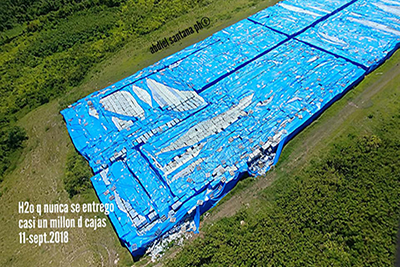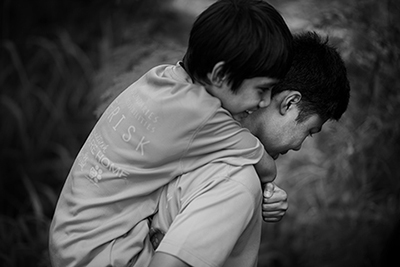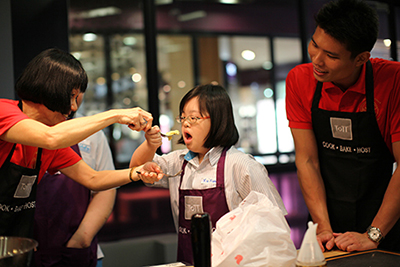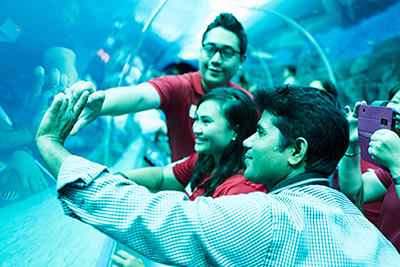|
Companies wanting to do good through corporate social responsibility (CSR) initiatives face a quandary: how to ensure their aid is going where it is needed most.
[Editor’s note: Last month, our firm was honoured to have won the President’s Volunteerism and Philanthropy Awards (PVPA) in the Small and Medium Enterprises category. In getting there, we stood on the shoulders of giants – philanthropy leaders and VWOs who gave selflessly of their time and shared their experience to guide us. A big THANK YOU to them all.]
A disused runway stacked with crates of bottled water ought to have been a poster child for the efficacy of international aid. Ironically, it illustrated the opposite. In September 2017, Hurricane Maria “like a chainsaw in the sky, one hundred miles wide” made devastating landfall in Puerto Rico. The disaster killed almost 3,000 and left another three million without food and water. International aid was quick to pour in, but to mixed effect.
One year on, that stockpile of life-giving liquid sits untouched, covered with blue tarp shredded by the ravages of time. Information remains scarce as to why exactly the water was not distributed to the hurricane victims, many of whom are today still cut off from utilities. In its place laid plenty of finger pointing.

Photo credit:Abdiel Santana/ Facebook
This incident does not stand alone. Even the Red Cross has been mired in scandal. After the deadly 2010 Haiti earthquake, it raised almost half a billion dollars in aid, which it claimed had been deployed to help 4.5 million Haitians get “back on their feet” – a figure the country’s ex-prime minister says is inflated. The well-known international aid agency has also been criticised for the large “cut” of donations it levies as administrative fees. But perhaps the most damning statistic is this: the Red Cross says it has provided shelter for more than 130,000 people, but the number of permanent homes built stands at six.
Singapore has suffered our own charity scandals.
In 2005, the National Kidney Foundation (NKF) – one of our largest and most-established charities – was rocked by a corporate scandal over donations being used to fund gold-plated faucets and first-class plane tickets for the chief executive. It was further discovered that only ten cents out of every dollar raised were used for dialysis costs.
A few years after that, the much-lauded head of Ren Ci Hospital, the Venerable Shi Ming Yi (best-known for daredevil fundraising stunts where he scaled 20-storey buildings), was found guilty of fraud and misappropriation when he siphoned donations for his personal BMWs, club memberships, global real estate and racehorses.
Putting the brakes on corporate giving
Naturally, outrageous wrongdoings like these give even the most well-meaning donors pause for thought. To rectify the situation, the Singapore government imposed more rigorous regulations on charitable organisations. It has also established a class of charities as Institutions of Public Character (IPC) that are subject to stricter monitoring to give donors a greater sense of confidence, and where donations are eligible for tax exemption.

While the development is on the right track, it also means that less-established (but just as deserving) causes unable to achieve IPC status will find it even harder to compete for the charity dollar. This is where responsible corporates, armed with a better understanding of the charity landscape than that of the general public, can step in.
Seek out the “unsexy”
Because of their visibility, it is tempting to support established charities. NKF was, in its heyday, the best-funded charity with more than S$250 million in reserves. Although every need is equally pressing, there are causes which simply do not enjoy the same level of support; cherubic pre-schoolers who have lost their hair to chemotherapy are easier to raise money for than gangly teens with discipline problems because their parents are in jail.

Our firm, which shutters our shop front two days a year to organise charity events, has over the years shifted our focus to the latter type of beneficiaries. It felt good to persuade Toys R Us to open an hour early for a Christmas shopping spree for cancer sufferers. However it is our day at Outward Bound School (OBS) with youth-at-risk from a boys’ home that has stuck in our minds: as we yelled out encouragement to the 14-year-old trembling when he attempted to walk a tightrope, we understood that he was not grappling with a fear of heights but facing down the mountains in his life.
Give the gift of empowerment
Charity should not be about handouts. It should be about giving the less-fortunate a boost, to help equip and empower them.

After our OBS event, one of our lawyers observed that “if we just give them a handout, no matter how enriching, these boys will always feel like victims”. He hit on the idea of asking the boys from the home to be “Big Brothers” to kids with intellectually disability during a baking class we organised as our next event. We hope that despite the challenging circumstances, they realised that they each have something to offer.
Multiply your impact
No matter how good it feels to do something removed from your workaday world, ultimately it is our skill set that enables us to do the most good. Citi, which won this year’s PVPA for Large Enterprises, focuses on imparting financial literacy to the youth. As lawyers, one of the most tangible ways for us to give back is to provide free legal service, and one of the most underserved in our society are our foreign workers. When we volunteer our pro bono hours, we try to take on those cases that have a more far-reaching impact than just the worker whose rights we defend.

TSMP successfully took up the legal cudgels for Hasan Shofiqul, a construction worker whose employer had denied him overtime pay on the basis that his position as foreman made him an “executive” or “manager” under the Employment Act. Mr Hasan, who would work until 3am, return to his dormitory and report back to work three hours later, had a monthly salary of S$2,200. Thankfully, the High Court upheld Mr Hasan’s case and clarified the position, paving the way for other workers to be paid their dues.
Charity begins at home
It is one thing to take time off to do some good; more challenging to have to restructure your organisation to empower those with disabilities.
Some months ago, while I was waiting to be admitted to Mount Elizabeth Novena Hospital for a minor procedure, a young lady appeared, pushing a service cart. She moved slowly, approached each patient systematically and spoke in deliberate tones. She repeated the lines: “Would you like some water? Do you want a biscuit?”
The words were uttered emotionlessly, the water handed out mechanically, but her actions brought a smile to everyone around her. The employee of the hospital has Down syndrome. It was heartwarming to have the burden of the admittance process alleviated, especially by someone with a disability, who was living proof that we all do have something to offer.
CSR has become such an integral KPI for many corporates that fund managers have started peddling “impact investments” for people wanting to invest in businesses that make a difference. We can argue about the efficacy of such funds but one thing is not up for debate: as our country grows in affluence and regional influence, it is our responsibility to use that success and that reach to help the less advantaged.
Or, if I can perchon the shouldersof one more giant, the late Mr Nelson Mandela, whose words on these were:
“A nation should not be judged by how it treats its highest citizens, but its lowest ones.”
|